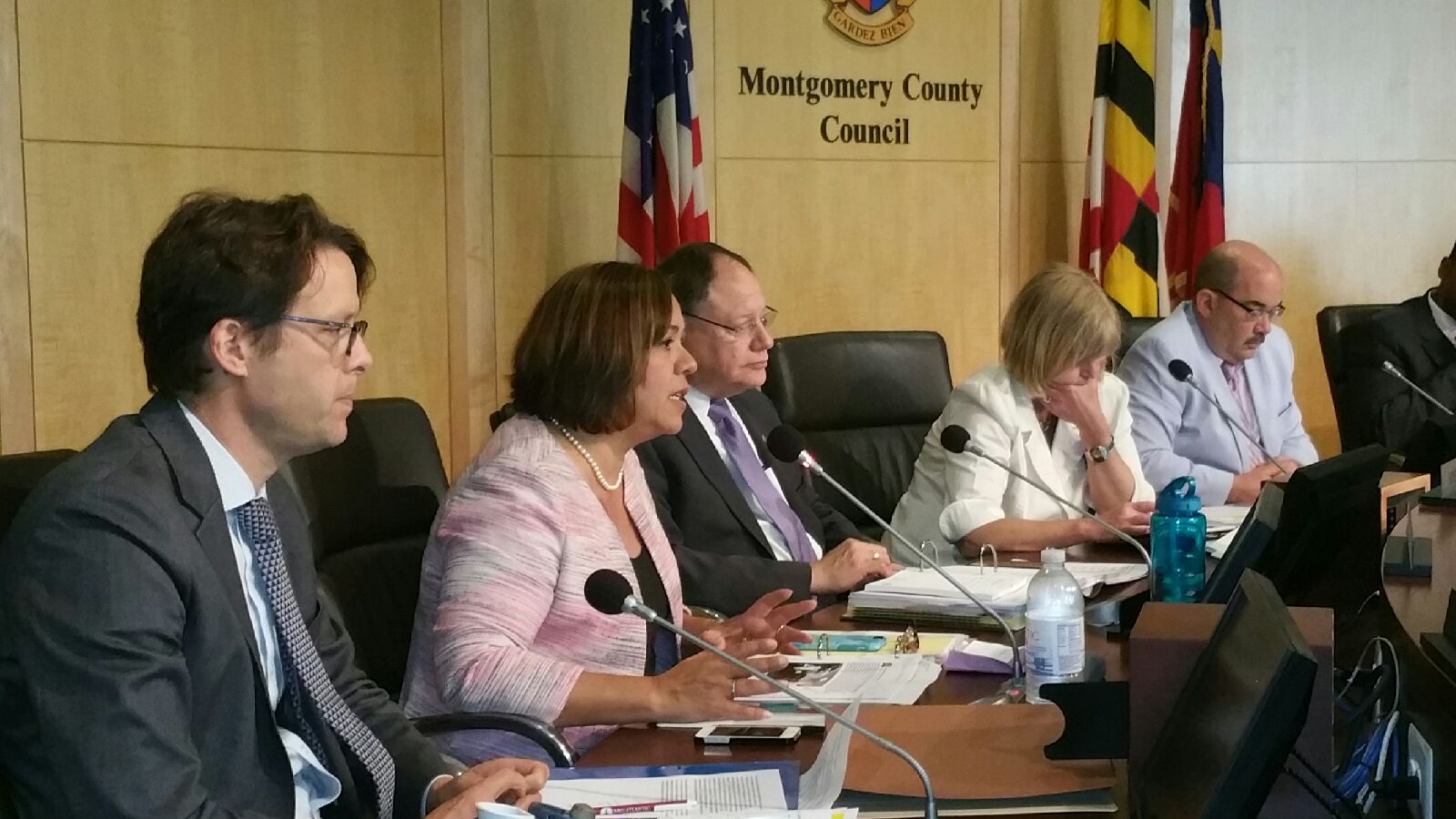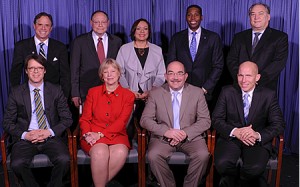
A Look Ahead at Council’s Agenda for June 23rd
 At the June 23rd meeting, Montgomery County Council members are expected to discuss Bill 60-14 that would require an employer doing business in the county to provide earned sick and safe leave to employees for work performed in the county.
At the June 23rd meeting, Montgomery County Council members are expected to discuss Bill 60-14 that would require an employer doing business in the county to provide earned sick and safe leave to employees for work performed in the county.
Earned sick and safe leave is paid leave that can be used for the injury or illness of the employee or the employee’s immediate family. It also can be used for time off needed due to domestic violence suffered by the employee or a member of the employee’s immediate family.
A worksession on Bill 60-14 will be part of the Council’s regular weekly session that will begin at 9:30 a.m. in the Third Floor Hearing Room of the Council Office Building at 100 Maryland Ave. in Rockville. The morning session, six public hearings scheduled to begin at 1:30 p.m. and the ensuring afternoon session will be televised live by County Cable Montgomery (CCM—Cable Channel 6 on Comcast and RCN, Channel 30 on Verizon). The broadcast also will be streamed at: www.montgomerycountymd.gov/council/ondemand/index.html.
Under Bill 60-14, an employer could provide any type of paid time off that can be used by the employee for any of the purposes outlined in the bill to satisfy the earned sick and safe leave requirement.
Bill 60-14 would require an employer to provide earned sick and safe leave at a rate of at least one hour for every 30 hours an employee works in the county up to 56 hours in a calendar year. An employee would have to be paid for earned sick and safe leave at the same rate, and with the same benefits, as the employee normally earns. A tipped employee would have to be paid at least the county’s minimum wage for each hour the employee uses earned sick and safe leave.
At a Jan. 29 public hearing on Bill 60-14, 19 of the 28 speakers supported the bill.
State legislation to mandate earned sick leave was introduced in the Maryland General Assembly in 2014 and 2015, but was not enacted.
Council President George Leventhal is the lead sponsor of Bill 60-14. Councilmembers Marc Elrich, Tom Hucker, Nancy Navarro, Hans Riemer and former Councilmember Cherri Branson are co-sponsors.
The Council is also scheduled to take action on Expedited Bill 24-15, which would modify a provision of the county minimum wage law regarding tipped employees.
A tipped employee under the county minimum wage law must be paid the county minimum wage, but the employer may subtract from the hourly wage paid a tip credit. The maximum tip credit is the county minimum wage less 50 percent of the state minimum wage. For example, the county minimum wage is $8.40 per hour. The state minimum wage is currently $8.00 per hour. Therefore, the maximum tip credit is $8.40 less $4.00 (50 percent of $8.00) or $4.40. Therefore, an employer must pay a tipped employee working in the county a base pay of $4.00 per hour. If the employee does not earn enough in tips to cover the tip credit, the employer must make up the difference. However, the maximum tip credit will change as the county minimum wage and the state minimum wage change over time.
Bill 24-15 would keep the base pay an employer must pay a tipped employee at $4.00 per hour.
During the morning session, Bill 33-15 will be introduced aimed at improving taxi service in the County. The lead sponsor of the bill is Councilmember Roger Berliner. Councilmembers Nancy Floreen and Craig Rice are co-sponsors. A public hearing on the bill is tentatively scheduled for 1:30 p.m. on July 14.
Bill 33-15 would impose a charge of 25 cents per ride in a vehicle operated in a Transportation Network Company (such as Uber or Lyft) and would create a fund to receive and distribute the revenue generated by the charge. Money from the fund would be used to offset higher costs of operating accessible taxicabs—traditional taxis—in the county, with the intended effect of increasing the availability of accessible transportation. The bill would require the County Executive to establish the procedure for making disbursements from the fund to taxicab owners and operators.
During the morning session, the Council will hold a worksession on the International Green Construction Code (IgCC), which is the first model code that includes sustainability measures for an entire construction project and its site from design through construction, certificate of occupancy and beyond. The new code intends to make buildings more efficient; reduce waste; and have a positive impact on health, safety and community welfare.
The morning session also will include scheduled action on the Sandy Spring Rural Village Plan.

Engage us on Facebook
Follow us on Twitter
Tweets by @mymcmedia